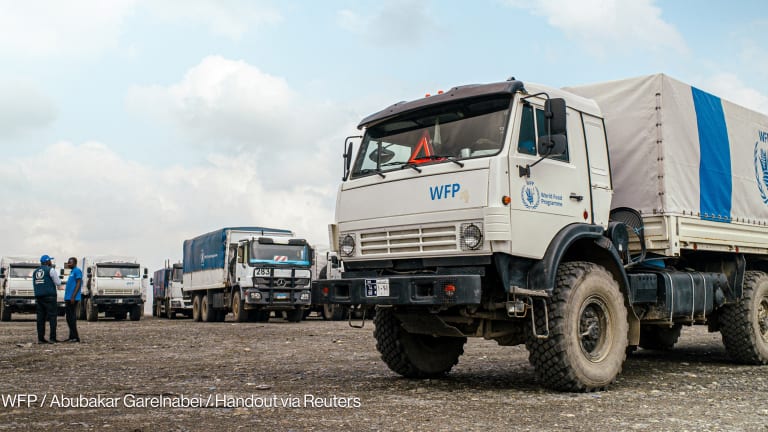
While the international community is trying its best to convince the government and rebel forces in South Sudan to end hostilities, aid groups are struggling to maintain full operations inside the country.
What everyone expected to be a short-lived spat of violence in the capital of Juba after an alleged failed coup in December has now blown out and spread over across seven states. Although certainly not new, the massive scale of fighting is posing more challenging circumstances for humanitarians, who now have to deal with even higher insecurity along with some of the country’s persisting development challenges: lack of infrastructure, poorly performing social institutions, and limited basic services.
The past few days have been quiet — in particular in Juba — but the situation is so volatile that it could very well be the calm before (another) storm. For sure, everyone wants the fighting to end and for the warring parties to reach a peace agreement. But a ceasefire anytime soon appears to be highly unlikely, and humanitarians fear the unrest could go on for months — if it doesn’t turn into all-out civil war.
Devex spoke to several aid officials in South Sudan to understand their current problems. Here are the top 3 challenges for aid workers in the country:
1. Looting
Aid looting has long been a problem in South Sudan. In May 2013, suspected members of the rebel group SPLA raided warehouses and offices with humanitarian supplies in Pibor, Jonglei. This is particularly concerning in the current situation, with so many displaced people and with supplies potentially running low for some aid groups. GOAL CEO Barry Andrews told Devex of incidents of looting from clinics run by the Irish NGO, and UNHCR last week reported losing pickup trucks, fuel and water pumps in Yida Camp in Unity State.
2. Procurement, logistics
It’s not yet the rainy season in South Sudan, but it pretty much feels like it given the difficulties aid groups are having to move across states and deliver assistance.
Médecins Sans Frontières, for instance, had to temporarily discontinue some projects outside the capital after having a hard time organizing air transport for its staff members, emergency coordinator Henry Gray told Devex. And in Juba, it had to cut down its presence in one of the IDP camps.
“We’ve had to reduce our team size for logistics issues, but we’re hoping to bring both teams back especially if the current calm continues,” said Gray. The U.N. World Food Program has also raised the same issue.
“The ongoing conflict combined with very poor roads make it very difficult and dangerous to move large amounts of food, especially through contested areas. And we need to be sure that distribution of food is done securely, so it doesn’t place people in even more danger, or endangers the lives of our staff or partners,” WFP public information officer George Fominyen told Devex.
GOAL, meanwhile, is increasingly finding it difficult to handle large amounts of cash.
“There’s a lack of a banking system in South Sudan, so we’re dealing with a lot of cash. But when you’re trying to move large amounts of cash where there’s fighting going on and checkpoints, it’s really difficult and put people in charge under tremendous pressure to ensure its delivery,” said Andrews.
3. Fewer humanitarian actors
The insecurity has led many groups to relocate or evacuate international staff out of South Sudan, leaving many stalled projects and gaps in the humanitarian response.
A few weeks back, GOAL had to pull out its expats following recommendations from the U.S. and Irish governments, although the organization was able to keep its clinics running with local employees and volunteers. The same happened to UNHCR, which now has to employ several trained refugees to run its IDP camps in Maban county following the relocation of several staff members and the pullout of many NGOs.
“Some organizations have reduced activities because of the deteriorating security situation, so gaps are appearing in international and national NGOs’ response,” explained Gray. “The health system [in South Sudan] is fragile at best, [and the conflict] is not gonna make things easier. This is the consequences of insecurities, that some organizations will have to reduce some activities, which is going to make health support suffer.”
Read more development aid news online, and subscribe to The Development Newswire to receive top international development headlines from the world’s leading donors, news sources and opinion leaders — emailed to you FREE every business day.








